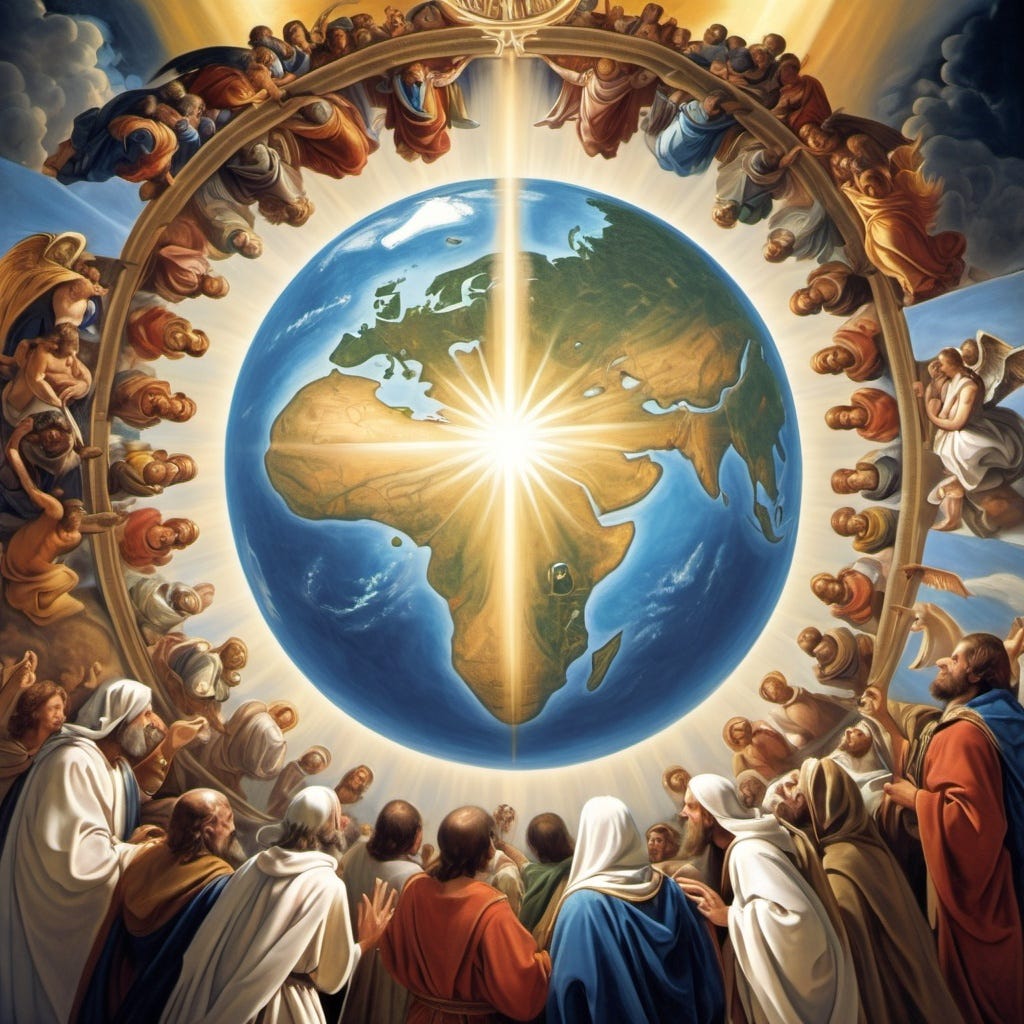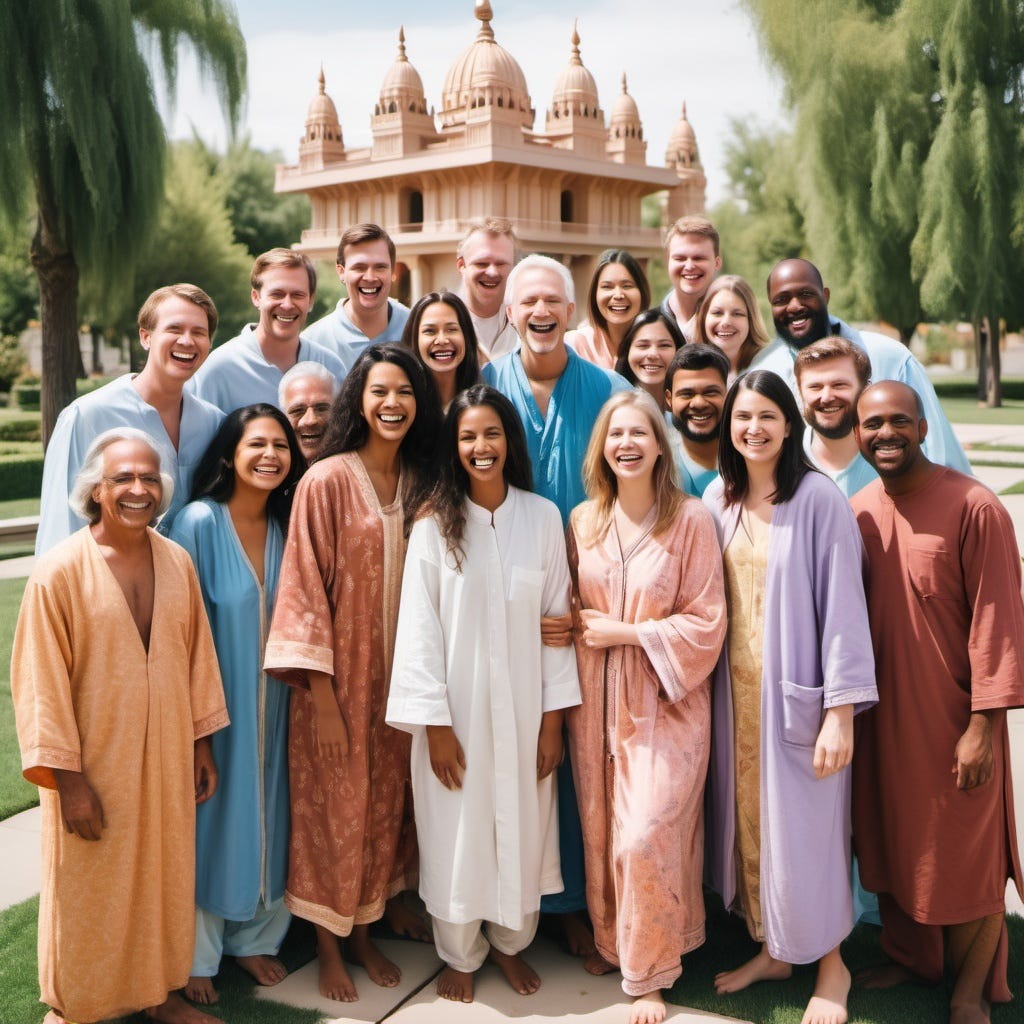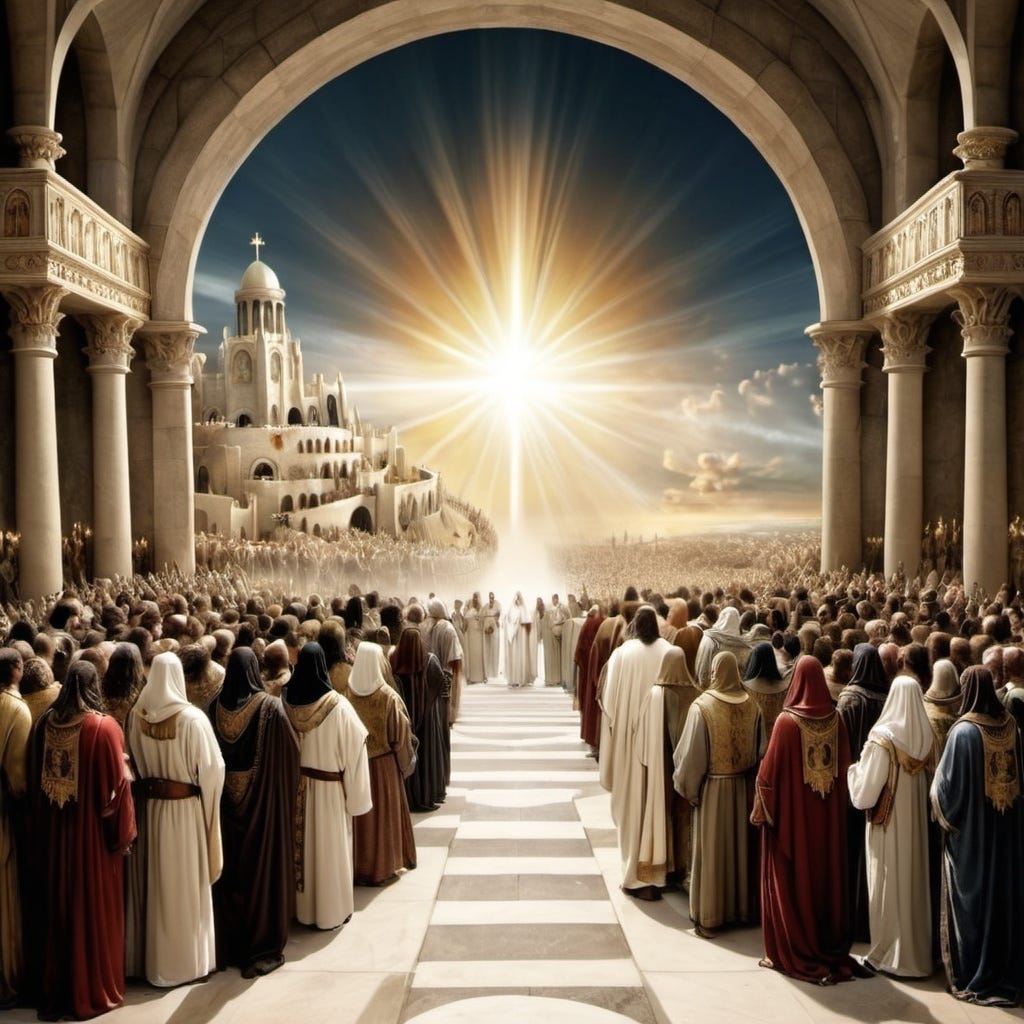
In 2012 or so, I was at a particularly low point in my life and spending the overwhelming majority of my free time wandering aimlessly online, and I stumbled across a book called The Ascent of Humanity, by Charles Eisenstein. The book talked about how modern societies are stagnant and unhealthy because of the long pursuit of a “story of separation,” which figures people as discrete units that have to fend for the right to exist in an otherwise indifferent universe. Charles argued that this story was corrosive and demonstrably false. The solution, he suggested, was to replace this with a truer story of interconnectedness, and to do this we all have to navigate a difficult journey through the unknown.
Within a year or so of reading The Ascent of Humanity (which had come out in 2007), I’d gotten much more involved in Charles’ thinking. I discovered he’d published a second book (Sacred Economics) and a third book, The More Beautiful World Our Hearts Know is Possible, the latter of which had gotten a lot of attention (and which I definitely recommend, if the title grabs you). In The More Beautiful World, Charles continued to develop the idea of the journey from the “story of separation and scarcity” into what eventually he called a “new and ancient story” based on the principles of Interbeing.
Summer of 2018, I went to a four-day gathering called “The Space Between Stories,” which Charles hosted at the Garrison Institute, a beautiful old monastery on the Hudson in upstate New York. At the time, I was definitely in a space between stories, personally. One year before, I had left a teaching job of ten years, and I also wasn’t going back to the school where I’d taught the previous year, either. I’d taken ten thousand dollars out of my 401K, and I felt like I was free-floating. I played Tom Petty’s “Learning to Fly” on Spotify a lot.
I’ve done my share of weekend intensives, and this retreat at Garrison was, without a doubt, the most wonderful gathering of its kind that I’ve ever attended. There were more than a hundred of us, young and old, families, even, from all over the country and the world. I’ve never been around a larger group of more sincere, good, interesting, alive people. Everyone there resonated with the idea that we live in a liminal time. We felt that the ideas of a “mainstream” culture were emptying of meaning, wringing people out. We felt a desire to live into something more. Few of us knew for sure what that would be, but once we were together, it really felt like it was happening. It felt imminent. It felt ambient.
By the fourth day of the event, many of us didn’t want to leave. So we didn’t. We asked Garrison if we could stay a little longer, and they told us they could accommodate us for another three days, so about half of the group just kept their rooms (we kept paying for them), and Garrison made arrangements for us to keep meeting in one of the lower meeting rooms in the building.
At that point, we had no plan. We just formed a big circle of chairs — forty or fifty chairs or so — and talked. Occasionally we broke into groups to do process work. We were figuring it out as we went.
We discovered a young man with us, in his twenties, who was supposed to have gone back to work on Monday, and he hadn’t gone back. He shared with the group that he had told his employer he wasn’t coming back; instead, he’d decided just to full-on leap into the “new story.” He had a kind of wild-eyed look of hope and fear on his face as he shared his experience. I wasn’t sure he was making a healthy choice. But in the company of that group of people, you could feel that “new story” starting to happen.
And to be clear, there was none of the culty, hard-sell quality that can happen in a weekend intensive. There was more a relaxed, clear-eyed sincerity, charged with anticipation and hope. I don’t think Charles had any illusions of being a guru — not rampant, overtaking ones, anyhow — and not back then, anyhow. You just really had the sense that we were creating a gateway into a new, more authentic kind of living in an open, sincere, emergent way.
Of course, in reality young man who had made the leap, like the rest of us, didn’t really have anywhere definite to land yet. By the end of the extra three days — seven days total — we had the sense that the event was over. We had to go back to our lives, where the experience of the previous week started to mix with the more muddled themes of the lives we’d left behind. I lost track of what happened to the young man, but I’m guessing that whatever happened, it involved a nonzero amount of hasty damage control.
When I got home, I created two folders in Google Drive, one labeled “New Story” and the other labeled “Other.” Pretty much everything on Google Drive went into the “Other” folder, except for a few documents that seemed to already fit this expanding idea of a “new story.” Everything I’ve created since has gone into the “New Story” folder. It served as one of the most concrete reminders of something I felt thoroughly: Through a series of life changes, capped by this retreat, I had left one life behind and started a new one.
Over the past few years, Charles has received a lot of criticism, first for his questions about Covid vaccines, then for joining RFK, Jr.’s presidential campaign, then for some other things he’s written. Personally, I think it’s hard to deny that that Charles has remained faithful to one basic tenet, which is that a more beautiful world — of understanding, harmony, and love, based in an underlying principle of the unity of all creation — is possible, and that the way there is a sort of renunciation of an old world of thinking and a rebirth in a new, liminal world.
He’s not the only one. Right around the time that Charles was hosting his gathering in upstate New York, the late spiritual teacher (and student) Terry Patten published A New Republic of the Heart, which has some similar framing — and which explicitly harkens to Charles’s ideas. You can see this thinking in Otto Scharmer’s uLab, too. Probably others that I’m not remembering right now.
And they’re not the only ones, either. I think Charles’s and Terry’s ideas echo more abstract and perhaps more sort of floofy “New Age” thinking of the 1990s, and earlier.
And the whole concept of the “new age” itself goes back to the Theosophists of the late 19th and early 20th century — Madame Blavatsky, C. W. Leadbeater, Alice Bailey, Annie Besant, and others — who believed that their esoteric order, which elaborately synthesized all esoteric and exoteric forms of Eastern and Western religion into a single system, was paving the way for the coming of a new world teacher, who would usher in a Golden Age. (That’s where the term “new age” comes from, actually. It’s also, basically, where Jiddu Krishnamurti comes from, btw — because he’s the one they thought was going to be the new world teacher.)
And Theosophy, of course, is just another iteration in an even longer legacy of “Kingdom” movements throughout the history of Christianity. And then all of that, of course, can ultimately be traced back to the earliest iterations of the Judeo-Christian tradition, itself.
At the very beginning of the Judeo-Christian mythos, you have a man and a woman in paradise. And then they break the rules, and they have to leave. It’s worth wrestling with the concept of Original Sin — asking hard questions about its meaning, validity, application, usefulness — but I think it’s also worth noting that, at the very least, the Judeo-Christian tradition holds that the idea of paradise is pre-exissting, and that it’s not happening in material reality now, and that this, according to the Judeo-Christian tradition, is one of the things that spirituality is designed to address.
Marty Solomon (of the BEMA Discipleship podcast) frames the early Biblical narrative as a process of learning to “trust the story” of God, the reward for which is shalom, an increasingly emergent harmony and abundance. And one of the major alternative to shalom is empire, the forced consolidation for the sake of the self. There’s a choice between restoration — approaching the kingdom — and sin, which is stepping away from it.
In the Bible, God enjoins the former. When God gives Moses the law, God commands Israel to be a “nation of priests.” They’re supposed to obey God and to create a society of sacred laws and social justice, marked by care for the poor, the widow and the foreigner. Some have supposed that the enjoinder is meant to serve as a reminder. When it seems like God is commanding, perhaps God is actually reminding us of our own native ways. That’s an idea, anyhow.
Some centuries after any historical exodus, the prophets start talking about a coming Kingdom of God more explicitly. An end of days, the lion will lie down with the lamb, swords will be beaten into ploughshares, etc. Heaven and Earth will join as the people of Earth will march right up to the temple of the Lord.
Later, Jesus’ message is saturated with the idea of the Kingdom of Heaven, or the Kingdom of God. It is a state of joy, love, mercy, abundance — a world governed by these. When Jesus sets out on his mission, he calls Peter and Andrew, and they throw down their nets — their livelihoods, their lives — and they follow him. It’s not unlike that young man at Garrison throwing down his job to follow what Charles was talking about. Our little portal to the Kingdom in upstate New York was a furtive one. Jesus’ was much, much more profound.
After Jesus, Paul wrote letters to people who had already entered into the Kingdom. The Kingdom is one of the essential ideas of Paul’s theology. Through faith in Jesus you enter into membership: you’re in the Kingdom, and the Kingdom is in you. You will feel it working itself out — in you, and in your life — as you go. Today, you can still go to churches, like that evangelical church I attended over the summer, where the feeling of entrance into that Kingdom is really palpable. Through an encounter with two-thousand-year-old words, the experience of a Kingdom fills a room of hundreds of people to this day. (Even if the ideological infrastructure of these temples can be a little fraught.)
My main point here is that I really feel like this Kingdom idea is somehow real. Even if it’s fundamentally unreachable, there seems to me to be something worthy and valid in its pursuit, and something compelling about how it recurs as a dream. It seems to me that any movement that has some kind of Kingdom philosophy can help us get clearer and clearer about what the Kingdom actually is, how it might actually work, how it comes by inches, in ebbs and flows, closer and closer to Earth.
As I see it, the Kingdom is a culture of goodwill. Of challenge and forgiveness. Discipline and mercy. Of giving, until the very notion of receiving loses relevance. It’s the choice about this underlying structure that emerges — either ultimately toward it or ultimately toward the self.
The Kingdom is freeing, because it’s self-nourishing. You recognize its source — which is your own, native source — and then you’re giving and being given to. Charles has a good window into this, I think. He’s called it “living in the spirit of the gift” (which I think he may be borrowed from Wendell Berry). We find our way to purpose by exploring what we love, and where our gifts are. Giving out of our gifts is joyful, and beneficial. It creates an entirely virtuous cycle.
I find some of Paul’s ideas among the most compelling. Paul says there’s a self that you have to die to, in order to be reborn in another self, a new identity. For Paul, that old self is the self of “the flesh,” and the new self is the self of “the spirit.” The human world is full of distortions. (Not unlike Charles’ idea of an “old story.”) The rules of this world are not the rules of a higher order. (Also, not unlike Charles’ “new story.”) If you die to those old rules, you can be reborn in a cosmic order.
For Paul, this is life in Christ. Christ, wholly inhabiting the divine experience and human experience at the same time, begins to inhabit our own inner landscape, transforming it. We live less and less by those distorted rules of the human world, and more and more by the rules of a divine world. Importantly, for Paul, this initiation involves a personal choice — faith in the death and resurrection of Jesus — but it is not an entirely self-authoring event. We have a part. But partly it is also a gift of grace. (And the debate between the role of faith and works in salvation has churned for millennia.)
I don’t know what to make of the claims of the resurrection. I do think that faith the in the concept of resurrection has powerful, transformative effect. I think the idea of rapidly dying to a certain “old story” and joining the world of a “new story” is a really powerful idea. I don’t recommend taking the propositions of the New Testament entirely at face value. But as a yoga, I think they’re fascinating.
In contrast to Paul’s soteriology, for Charles, the Kingdom is rooted in an interconnected web of unfoldment. And you enter into the Kingdom by getting deeply honest with yourself — often starting with your natural reactions to the blighted nature the modern world. Give yourself permission to react the way that, in your heart of hearts, you already know you’re reacting to the world. Charles hasn’t necessasrily tried to articulate a path so much as he’s tried to be honest about what’s happening. You’re not instantly rendered into the Kingdom, necessarily, you’re just admitting you’re in a liminal space.
This is a powerful counter-balance to the traditional Christian approach, I think, which has a tendency to make people repressive and self-resisting. There are other Kingdom philosophies. I think it’s valuable to toggle between many lenses.
In the few years after I went to Garrison, I felt increasingly drawn into thinking about death and rebirth. Leaving a ten-year long job — a core community in my life, albeit a difficult and toxic one — was a real sort of death. Working a terrible job the next year ADHD middle-schoolers was a sort of passage through the underworld — a further death of the ego. (To be clear, they suffered me too.) And starting a new job, with a good deal of “new story-ish” coaching-culture Kool-Aid, was a sort of rebirth.
I bought identical sets of nice, but utilitarian clothes as a way to shed an online shopping habit. I started walking everywhere as part of my renunciation, my death to a more ordinary human story. I started to explore more and more deeply the idea of an identity in Christ.
The past four or five years, I’ve walked three miles to work every day, rain or shine. I try to use this time for meditation, and one of my over-arching meditations is, “Here we all are, building the Kingdom.”
We live in a time of many institutional crises — a climate crisis, crowning a larger consumption crisis; a democracy crisis; an education crisis that’s hard to define, and which folks don’t talk about as much. But I think at our best, we are trying to solve human problems through all domains of human effort — through sanitation, infrastructure, technology; through law and politics; even through anything that can be developed and distributed through the market.
Deeper than that, the Kingdom is governed by an ethos, a spirit. A mindset. This was the dream of Christendom, in a lot of ways — a life-giving ethos (or so believed) infusing all domains of human activity. And it’s also why many people lament the decline of Christendom, and dream of it coming back, right or wrong, maybe through the Eastern church.
It’s worth noting, too, just passingly for now, a certain connection between Kingdom and cult. When I was talking about the vibe at Garrison earlier, I felt compelled to mention that it wasn’t cult-y. Certainly, many cults and cult-like groups have some amount of Kingdom ideology. Jonestown did. NXIVM did. The Landmark Forum (not a cult, but not entirely outside the domain, either) has a sort of Kingdom ideology. I don’t think it impugns kingdom thinking, and I don’t think it totally impugns the impetus behind many cults either. (I do think it’s possible — and wrong — to brainwash people and to pressure people out of the freedom to think for themselves, but I think the nature of cults and cult-adjacent groups is actually pretty nuanced and complex, and worth exploring in another post.)

In the meantime, I think it’s worth thinking about something bright, and clean, and a little mysterious that attracts here: A perennial invitation to feel into a grand project. A Kingdom that is an interior state, but which is also supposed to be applied. It changes us, but it also informs how we might to build the world.
A beckoning of liberation, a dropping out of a low-key nightmare. A journey into an ever-widening light. A call, refracted through successive iterations of society, re-translated through one cultural language and the next.
Why do we dream about it, so consistently?




